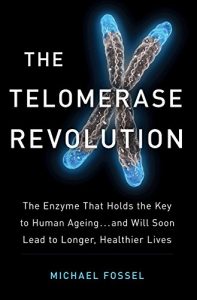Science is on the cusp of a revolutionary breakthrough. We now understand more about ageing - and how to prevent and reverse it - than ever before.
Twenty years ago, there was still considerable debate of the nature of human ageing, with a variety of competing theories in play. But scientific consensus is forming around the telomere theory of ageing. The essence of this theory is that human ageing is the result of cellular ageing. Every time a cell reproduces, its telomeres (the tips of the chromosomes) shorten. With every shortening of the telomeres, the cell's ability to repair its molecules decreases. It ages. Human ageing is the result of the ageing of the body's trillions of cells. But some of our cells don't age. Sex cells and stem cells can reproduce indefinitely, without ageing, because they create telomerase. Telomerase re-lengthens the telomeres, keeping these cells young.
In The Telomerase Revolution, Dr Michael Fossel, who has been at the forefront of ageing research for decades, provides startling insights into the nature of human ageing and describes how telomerase will soon be used as a powerful therapeutic tool, with the potential to dramatically extend life spans and even reverse ageing.






